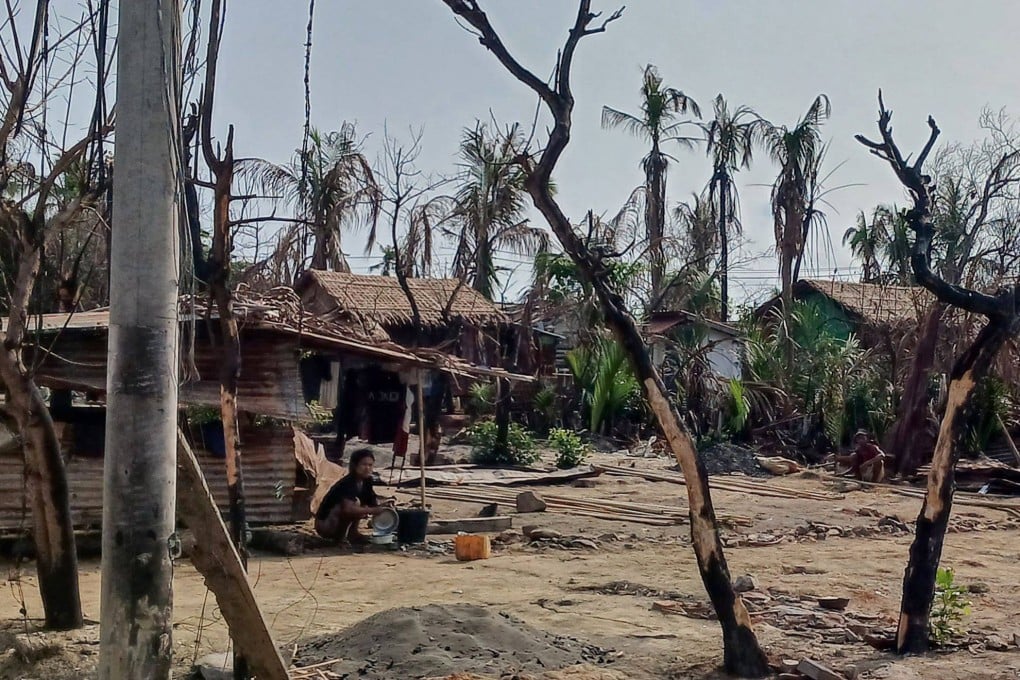Myanmar’s Rohingya ‘trapped between hammer and anvil’ as junta, rebels sow terror in Rakhine
- Muslim minority residents ‘pushed to the wall’ as security forces and the Arakan Army target villages with arson attacks and killings

A fierce gunfight between Myanmar’s military and the Arakan Army (AA) rebels in Rakhine state has thrust Rohingya Muslims into a fresh spiral of organised violence as alleged beheadings and arson attacks rattle the persecuted community.
Nay San Lwin, co-founder of the advocacy group Free Rohingya Coalition, said the onslaught against the minority Muslims was “far worse” than in 2017.
“This time the Rohingya are not just caught in the crossfire between the Myanmar army and AA. Both fighting sides are also violently targeting the community,” he said.
A brutal crackdown by the military in Rakhine seven years ago forced at least 750,000 Rohingya to flee to neighbouring Bangladesh for safety.
Nay San Lwin said the AA also torched dozens of Rohingya villages in Buthidaung township and extorted money from residents before pushing more than 200,000 people out of the area, with the UN human rights office calling the rampage “frightening and disturbing”.
“Over the past weeks, some hundred Rohingyas have been shot dead and beheaded by the AA,” Nay San Lwin said, adding the insurgents had blocked the displaced villagers from moving to safer parts of the country.
“Since Bangladesh has kept its border closed, the Rohingya cannot cross over to the neighbouring nation. They find no way to escape the war and violence.”